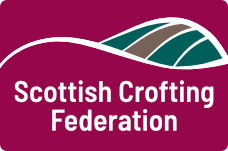For the island fishermen of Scotland and Ireland, their work is more than just a source of income. It is a livelihood from a way of living that has helped to define island identities for many generations. Small-scale fishermen on the islands of Arranmore, Inishbofin and Tory off the west coast of County Donegal in Ireland, and on Barra in the Western Isles of Scotland believe that their livelihood and way of living is threatened by powerful forces against which they find it difficult to make their voices heard.
In Donegal the islanders are seeking to overturn the Irish government’s decision to implement a total ban on their traditional subsistence salmon fishery – the ban has been implemented because there has been a decline nationally in the numbers of salmon returning to Irish rivers. On Barra, the islanders are opposing proposals from the Scottish Government’s heritage conservation agency to establish a marine Special Area of Conservation in the seas close to the island.
In both localities concern is being expressed that emigration – on islands where past population loss has been dramatic – will begin to increase again, and that restrictions on or the loss of a traditional livelihood from fishing, which has been so vital for the island peoples’ past survival, could make life on the island unteneable for many who have maintained cultural traditions – including the language traditions. These concerns have been made particularly acute in the context of the current economic crisis.
The Connecting Coastal Communities project aims to be a means by which islanders can express the importance of their relationship with their home place and of their working relationships with the seas, relationships which have helped to inform their cultural identities.
The research, which is being supported by funding from the ColmCille Partnership, will be carried out by Iain MacKinnon from the Isle of Skye and Liam Campbell from Donegal.
They will be asking fishermen on the Donegal islands and on Barra to tell them what their work means to them not just as a source of income, but also as a way of living – and whether and how this way of living has encouraged a sense of responsibility for their environment, as well as supporting their cultural and linguistic traditions.
By exploring their distinctive but shared maritime cultural identities, the research will seek to express connections between the Scottish and Irish island communities in ways that will encourage their resilience to maintain traditions in the face of a changing world.


